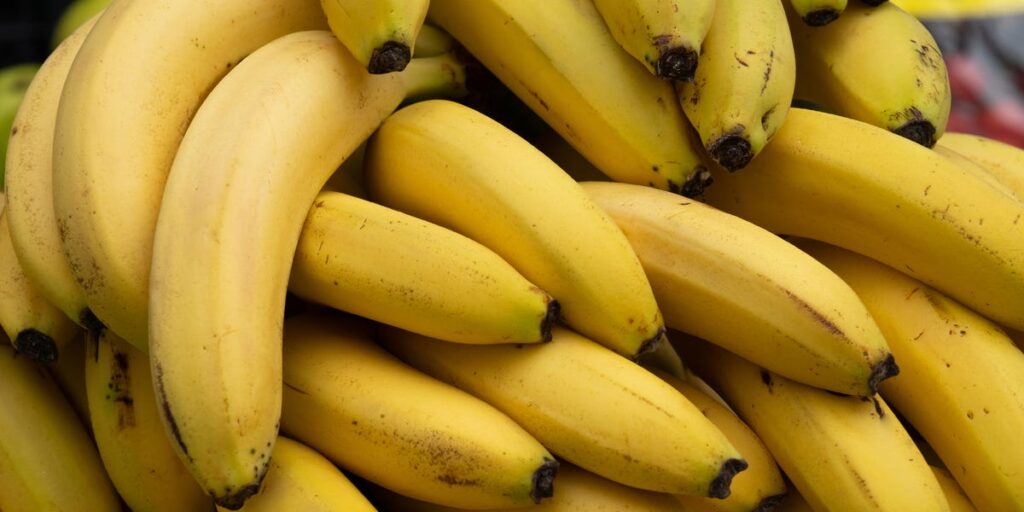Why Bananas Are the Ultimate Snack for Runners
Bananas have become a beloved staple in the world of running, often appearing in pre-race meals and post-event goodie bags. Their reputation as a running essential is well-earned, thanks to their impressive nutritional profile and practical benefits. In this article, we dive into what makes bananas an ideal choice for athletes and why they deserve their iconic status among fruits.
The Nutritional Powerhouse Behind Bananas
Known for their tasty profile and rich nutritional content, bananas are the UK’s favorite fruit. On average, each person consumes about 10kg of bananas annually, which equates to approximately 100 bananas per year. This yellow fruit is especially appreciated by runners for its natural carbohydrates and potassium, providing essential energy and hydration. But what makes bananas truly fascinating is their unique curvature, a result of a scientific phenomenon known as negative geotropism, where the fruit grows towards sunlight while curving away from the Earth’s gravitational pull.
Benefits of Carbohydrates and Natural Sugars
Bananas offer both quick and sustained energy, making them an excellent pre-workout food. With a medium banana containing around 105 calories and approximately 27 grams of carbohydrates, they serve as a formidable fuel source that can help power through longer runs. The natural sugars in bananas are composed of sucrose, fructose, and glucose, which deliver sustained energy without causing digestive discomfort. As athletes look for ways to maximize performance, bananas stand out for their convenient and effective energy boost.
High Potassium Content: A Heart-Healthy Benefit
Bananas are particularly high in potassium, a crucial mineral for runners. Potassium works in conjunction with sodium to maintain fluid balance, aiding in heart health and muscle function. Ensuring adequate potassium levels helps to regulate heartbeats and prevent muscle cramps, which is essential for those logging miles on the road. Interestingly, the potassium in bananas can contribute to blood pressure regulation, making them a critical component of any runner’s diet.
Examining the Risks of Overconsumption
There’s a common myth that one can overdose on bananas due to their high potassium content. However, the truth is that you would have to consume an impractical number of bananas to reach dangerous levels. A typical banana contains about 450 mg of potassium, while the NHS recommends a daily intake of 3500 mg. Therefore, even six bananas would not bring you to that threshold. Still, moderation is key, and maintaining a well-rounded diet is generally advisable.
Alternative Nutritional Benefits
Running is an intense activity, and nourishment plays a significant role in recovery. Bananas not only offer sufficient carbohydrates but are also rich in magnesium, which aids in maintaining strong bones as well as ensuring proper nutrient absorption. An average banana contains around 32 mg of magnesium, contributing positively to overall health. Additionally, bananas include tryptophan, which converts to serotonin—the hormone associated with improved mood. This natural boost, coupled with the endorphins produced after a run, can significantly elevate one’s mental state.
Bananas vs. Sports Drinks: Making the Right Choice
Research from a study published in PLOS One suggests that bananas can be a superior choice compared to sports drinks for enhancing post-run recovery. Participants who consumed bananas during their rides exhibited lower levels of inflammation and quicker recovery than those who relied solely on sports beverages. The natural nutrients in bananas, which include vitamin C and B6 along with fiber, provide health benefits unmatched by traditional electrolyte drinks.
Maximizing Your Banana Intake
Don’t overlook the banana peel! Many nutritionists advocate for consuming the entire fruit, including the peel, as it contains added vitamins and antioxidants, making it nutritionally superior to the flesh alone. If the texture of the peel is unappealing, consider blending it into smoothies—this practice not only adds nutrients but also helps in reducing waste. Each banana provides ample health benefits, making them a fantastic option for both pre- and post-run snacking.
